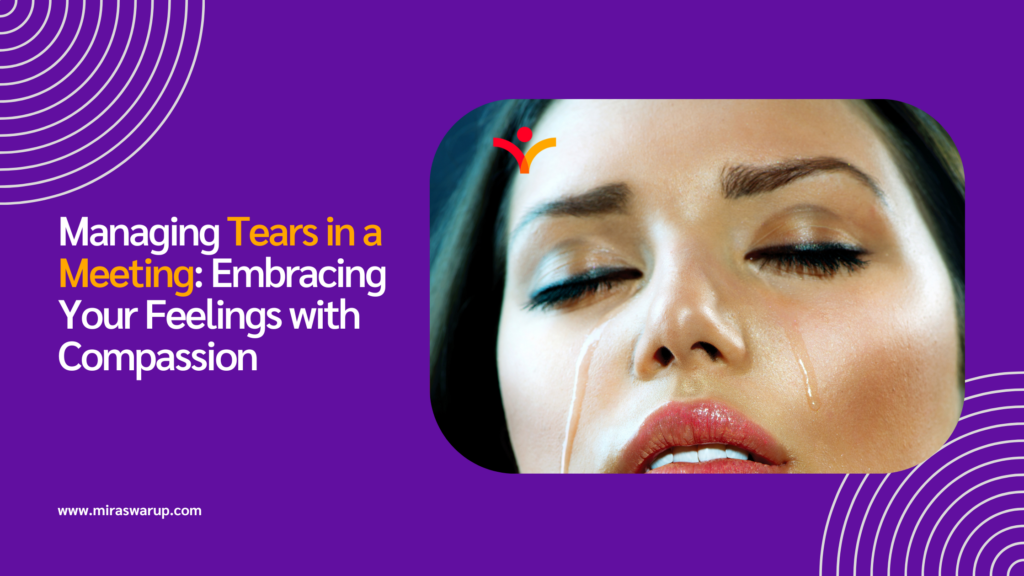Have you ever been so close to tears during a crucial meeting or conversation? It’s more common than you might imagine, and knowing how to respond politely in these kinds of situations is essential. In this post, we’ll go into more detail on the subject and look at techniques to keep your composure and professionalism when the tears start to fall.
Recognising the Natural Reaction
Above all, it’s critical to recognise that crying during a meeting is a normal and perfectly normal human reaction. It’s just your body letting out stress; it doesn’t mean you’re weak or incapable. The next time you see tears welling up, keep in mind that you don’t have to feel guilty or apologise. Effective management of this natural response begins with acknowledging it.
Regaining Calm for a Moment
Remaining calm during a meeting can be difficult when emotions are running high. Panicking or being extremely self-conscious, however, won’t make things better. Rather, inhale deeply and tell yourself that it’s acceptable to experience your emotions. Use a paper towel to gently wipe away your tears in order to restore your composure. It’s acceptable to excuse yourself for a short while if you need more time to gather yourself. Saying something as simple as, “Please give me a moment; I’ll be back shortly,” can enable you to take a quick break and come back with more clarity.
Reacting in a composed and expert manner
When your peers or coworkers see you crying, they might comment that it’s nothing to get worked up about or inquire as to why you’re crying. It is imperative that you respond with poise and calmness. Steer clear of overly sincere apologies as they may highlight your tears. Instead, use statements like “I’m listening; please continue” or “It’s a natural response given the nature of the conversation,” which helps to keep the conversation’s focus. These answers demonstrate your engagement and readiness to advance in your career.
Seeking Emotional Resilience Over the Long Term
Working on long-term emotional resilience is just as important as controlling tears when they happen. At some point, you may want to look into techniques like self-healing, meditation, or even hypnotherapy to help you become more resilient to emotional difficulties. You can become less prone to crying in stressful situations and more resilient by engaging in these practices.
In summary, displaying emotion—even tears—does not take away from your professionalism. Accepting your instinctive reactions actually indicates that you are a sentient human being. In the long run, it may be more harmful to suppress your emotions. Thus, give yourself permission to feel and express yourself, and employ these techniques to handle sensitive situations with dignity and grace. Keep in mind that your capacity to control your feelings, even under trying circumstances, is evidence of your humanity and sincerity.

